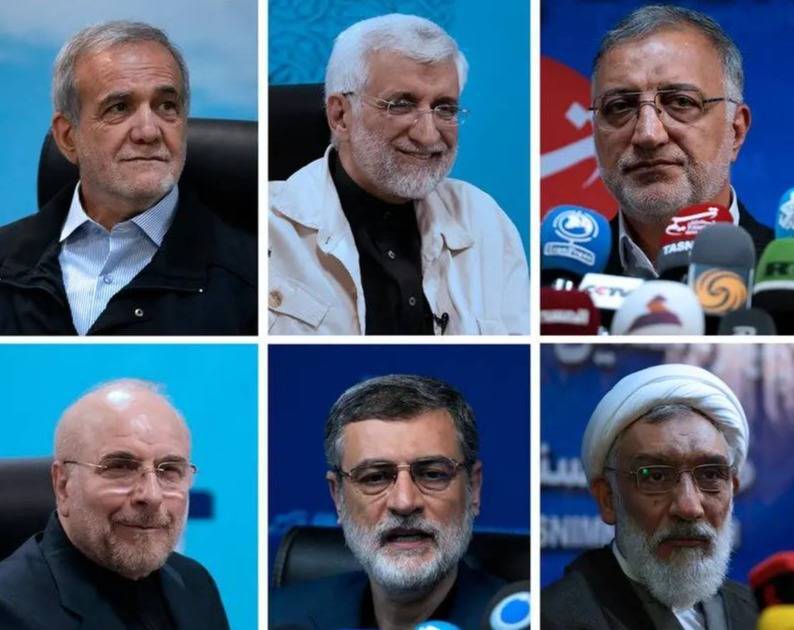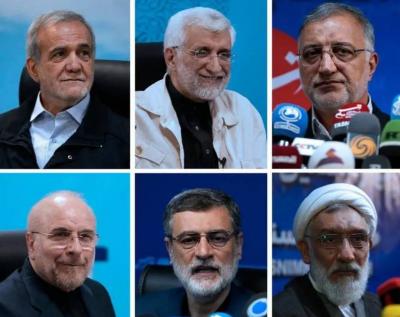Amidst expectations that hardline conservatives will dominate the elections, Iranians will cast their votes next Friday in an early presidential election to choose a successor to the late former president Ebrahim Raisi, who died in a helicopter crash. Although the elected president manages the day-to-day affairs of the country, real power remains in the hands of Iranian Supreme Leader Ali Khamenei, who has the final say on major issues such as nuclear and foreign policies. Analysts and observers believe that Khamenei is seeking a president who is highly loyal and reliable.
How is the voting process conducted? First, it is essential to know that the Guardian Council, a strict auditing body of clerics and legal experts loyal to Khamenei, approved five hardline conservative candidates and one obscure reformist candidate, heart surgeon Masoud Pezeshkian, aged 69, out of a group that included 80 candidates. The council, which examines candidates based on their political and religious qualifications, is composed of 12 clerics appointed by the Supreme Leader, nominated by the judiciary, and then approved by the parliament.
The conditions for candidacy for the presidency require that the candidate be an Iranian citizen and a prominent political or religious figure with "an unblemished record of piety and loyalty to the Republic," according to Reuters. The Guardian Council also prohibits women from running for the presidency, although some senior clerics and legal experts in the field of human rights say that the constitution does not exclude women from candidacy.
All Iranian citizens aged 18 and above are eligible to vote, meaning that over 61 million out of Iran's population of more than 85 million are qualified to cast their votes. All votes are counted manually, so the final results will not be announced for at least two days; however, preliminary results may emerge before that. If no candidate receives 50 percent plus one of all votes cast, including the ballots that did not choose any candidates, a second round will be held between the two candidates who receive the highest number of votes.
Alongside Masoud Pezeshkian, competing in this election scheduled for the 28th of this month are Saeed Jalili, the former chief nuclear negotiator; Ali Reza Zakani, the Mayor of Tehran; Mohammad Baqer Qalibaf, the Speaker of Parliament; Amir Hossein Ghazizadeh Hashemi, the late Raisi's Deputy; and Mostafa Pour Mohammadi, the former Minister of Justice.




